World Witnesses Longest Lunar Eclipse in Decade (LATEST PHOTOS)
On June 15, 2011, the earth witnessed the longest lunar eclipse in history in which the white light of the moon turned to blood red.
The latest lunar eclipse was visible in Australia, Singapore, India, UK, some parts of Europe and Africa. However, the North Americans have missed the rare spectacle as the eclipse ended shortly before 7 p.m EST.
The eclipse lasted 100 minutes and the last eclipse to exceed this duration was in July 2000. The next such eclipse is forecasted to take place only in 2141.
While Australian astronomers have to deal with thick cloud cover and rain in some parts of the country, others had a much clearer view of the show.
In Singapore, more than 700 people gathered outside a local science centre to watch, the Straits Times reported.
In India, the eclipse was widely seen with crowds gathered at the country's leading planetarium in the capital New Delhi. Meanwhile, the Nehru planetarium had set up special telescopes to view the event.
A lunar eclipse occurs when the moon passes behind the earth so that the earth blocks the sun's rays from striking the moon. This can occur only when the Sun, Earth, and Moon are aligned exactly, or very closely so, with the Earth in the middle. Hence, a lunar eclipse can only occur the night of a full moon.
The type and length of an eclipse depend upon the Moon's location relative to its orbital nodes. The June 15 eclipse was a central eclipse, visible over Europe and south America after sunset, over Africa and most of Asia, and Australia before sunrise. The previous total lunar eclipse occurred on December 21, 2010, at 08:17 UTC.
Unlike a solar eclipse, which can only be viewed from a certain relatively small area of the world, a lunar eclipse may be viewed from anywhere on the night side of the Earth. A lunar eclipse lasts for a few hours, whereas a total solar eclipse lasts for only a few minutes at any given place.
Experts said 2011 is a year of eclipses. Four partial solar and two total lunar eclipses will be seen this year. The next lunar eclipse this year will be seen on December 10.
Watch beautiful photos below showing various faces of the eclipse.
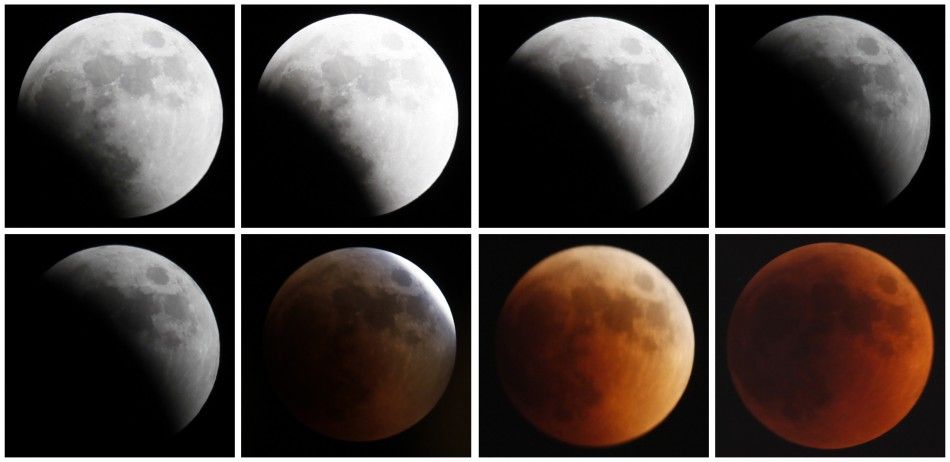
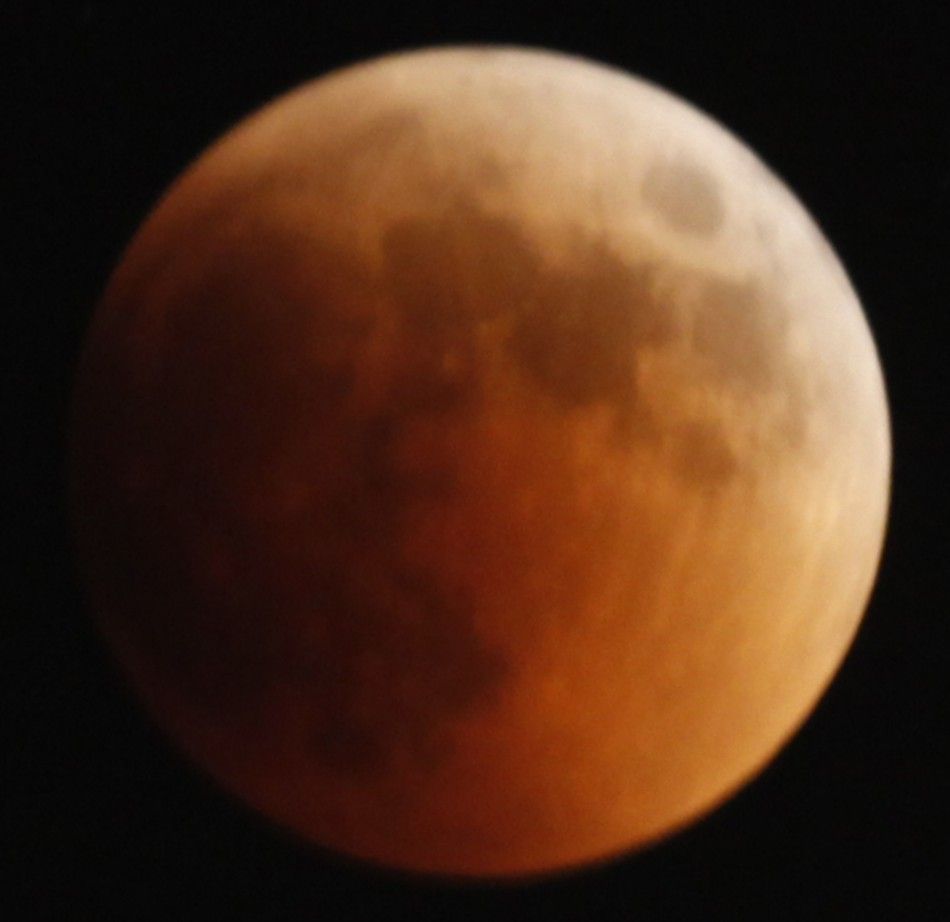
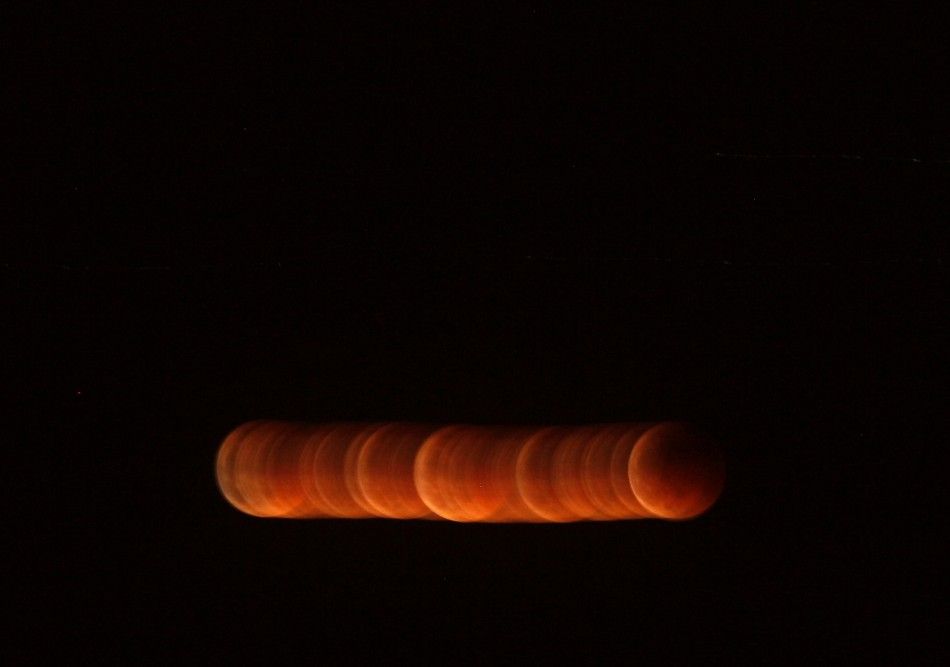
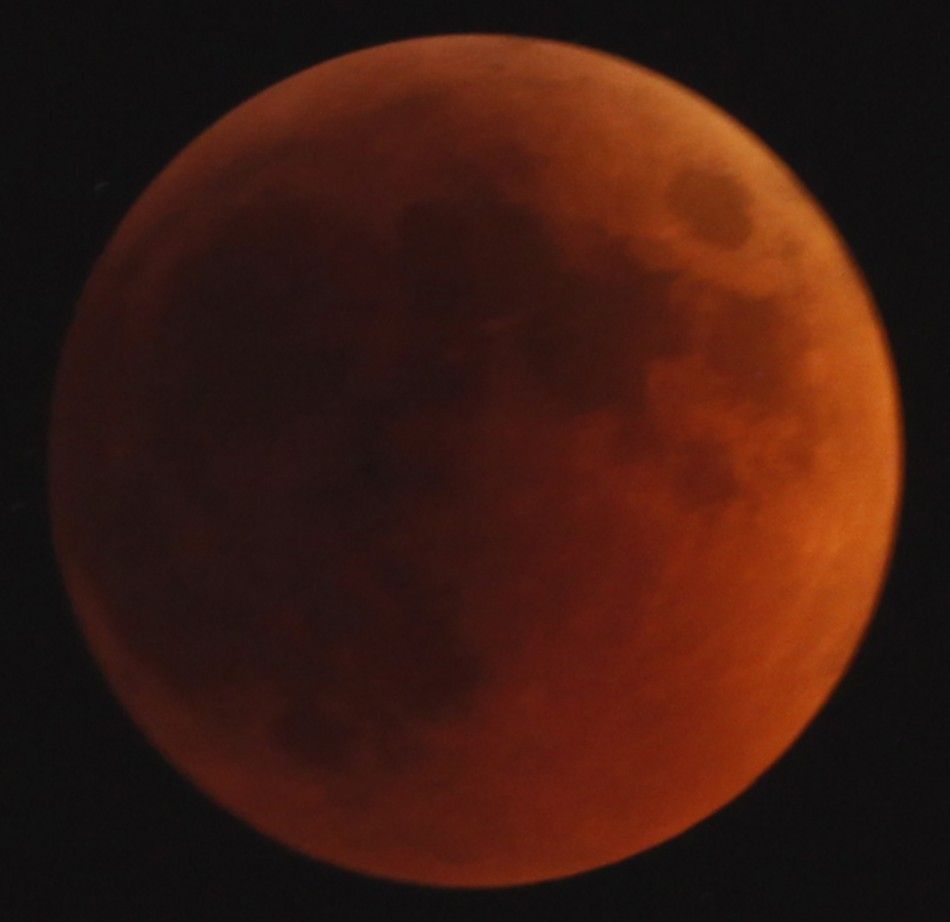
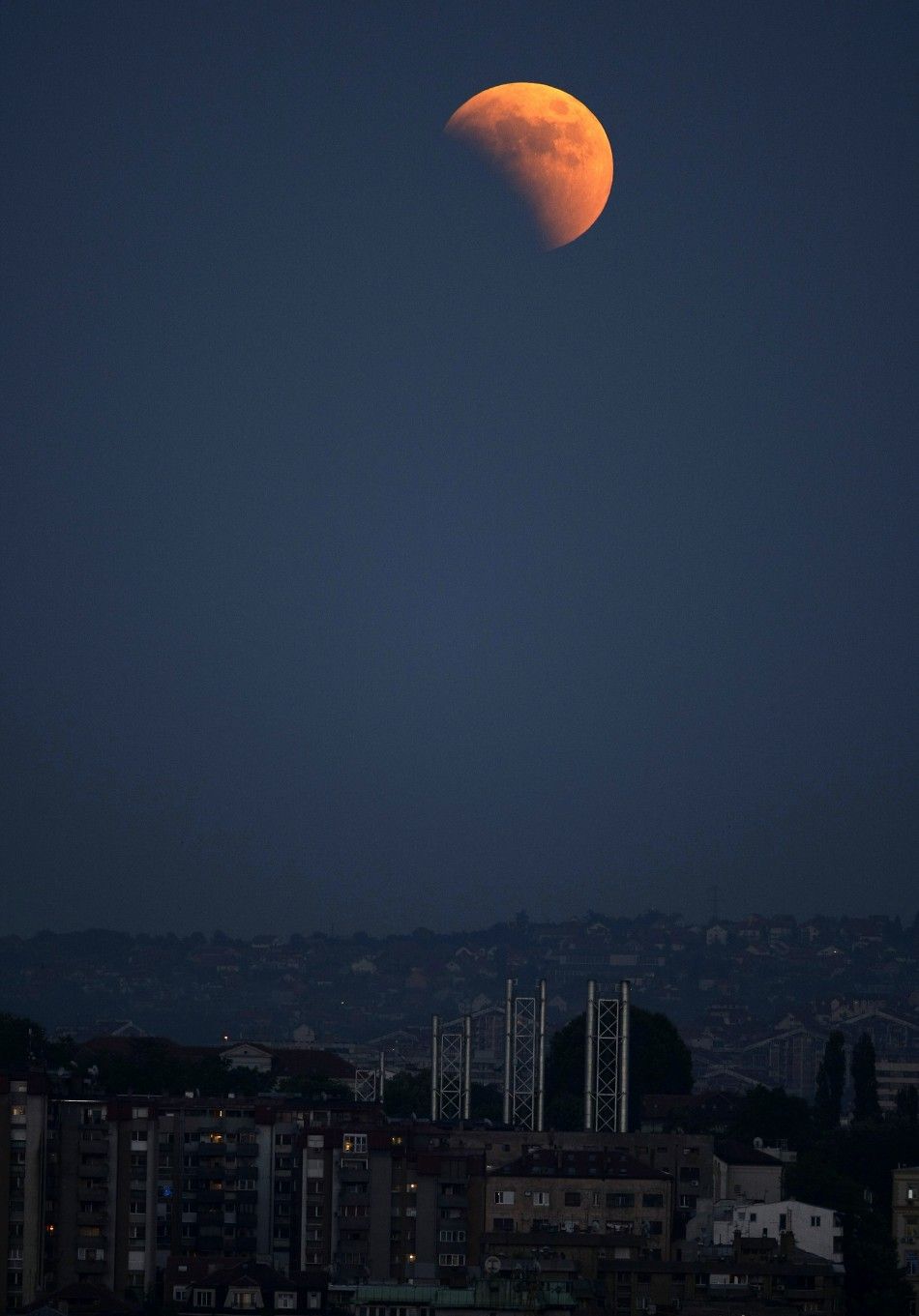
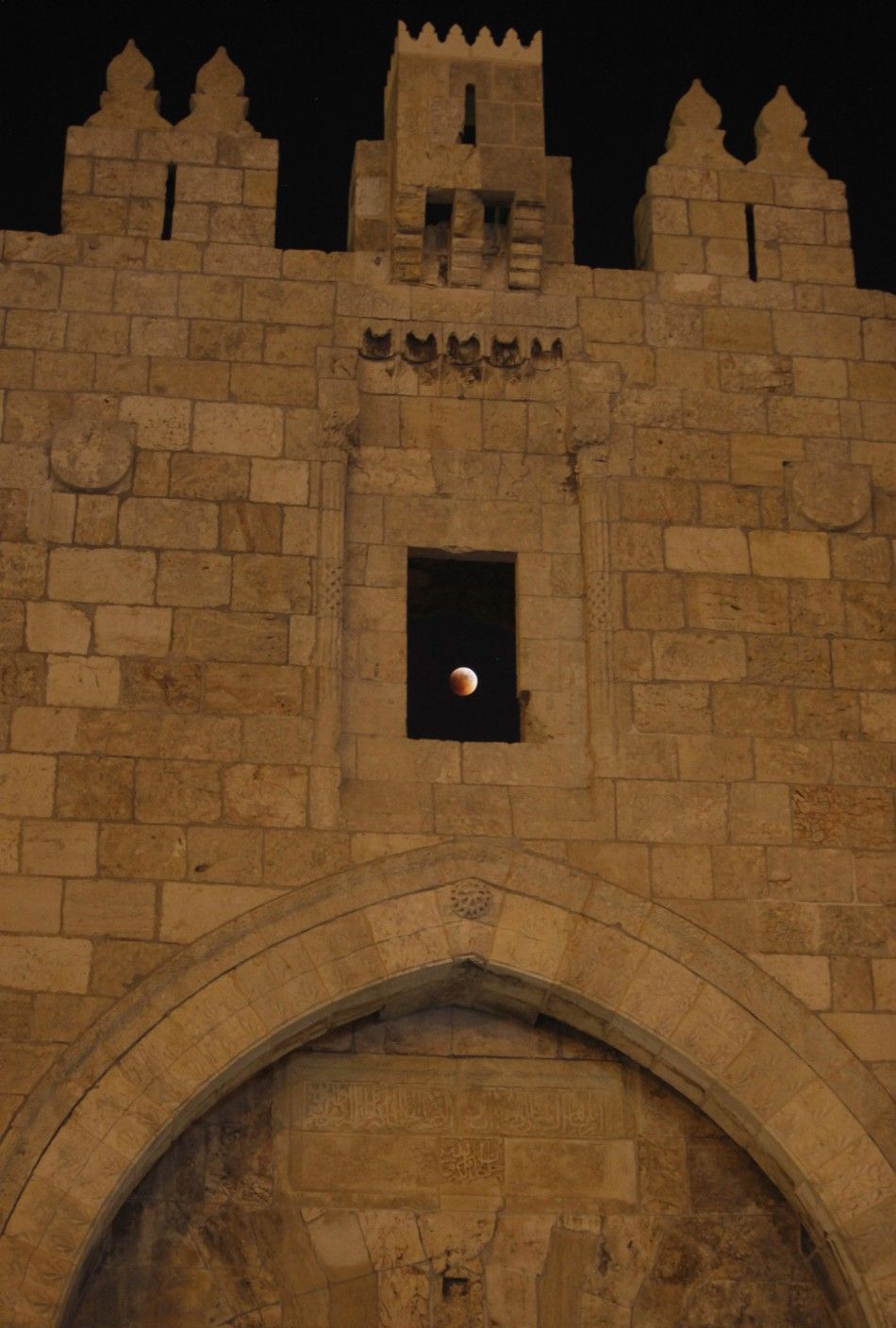

© Copyright IBTimes 2024. All rights reserved.





















